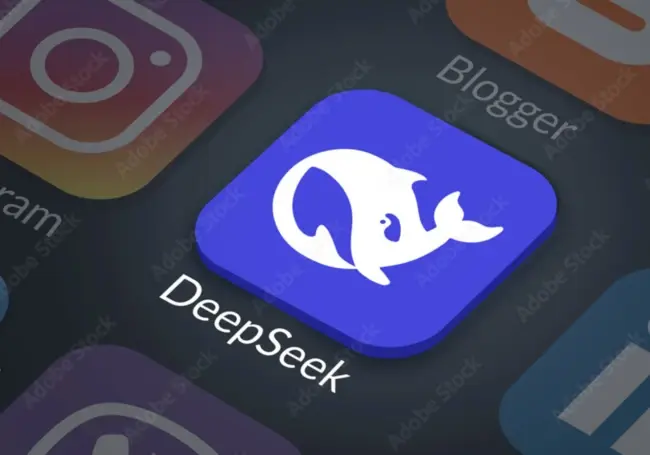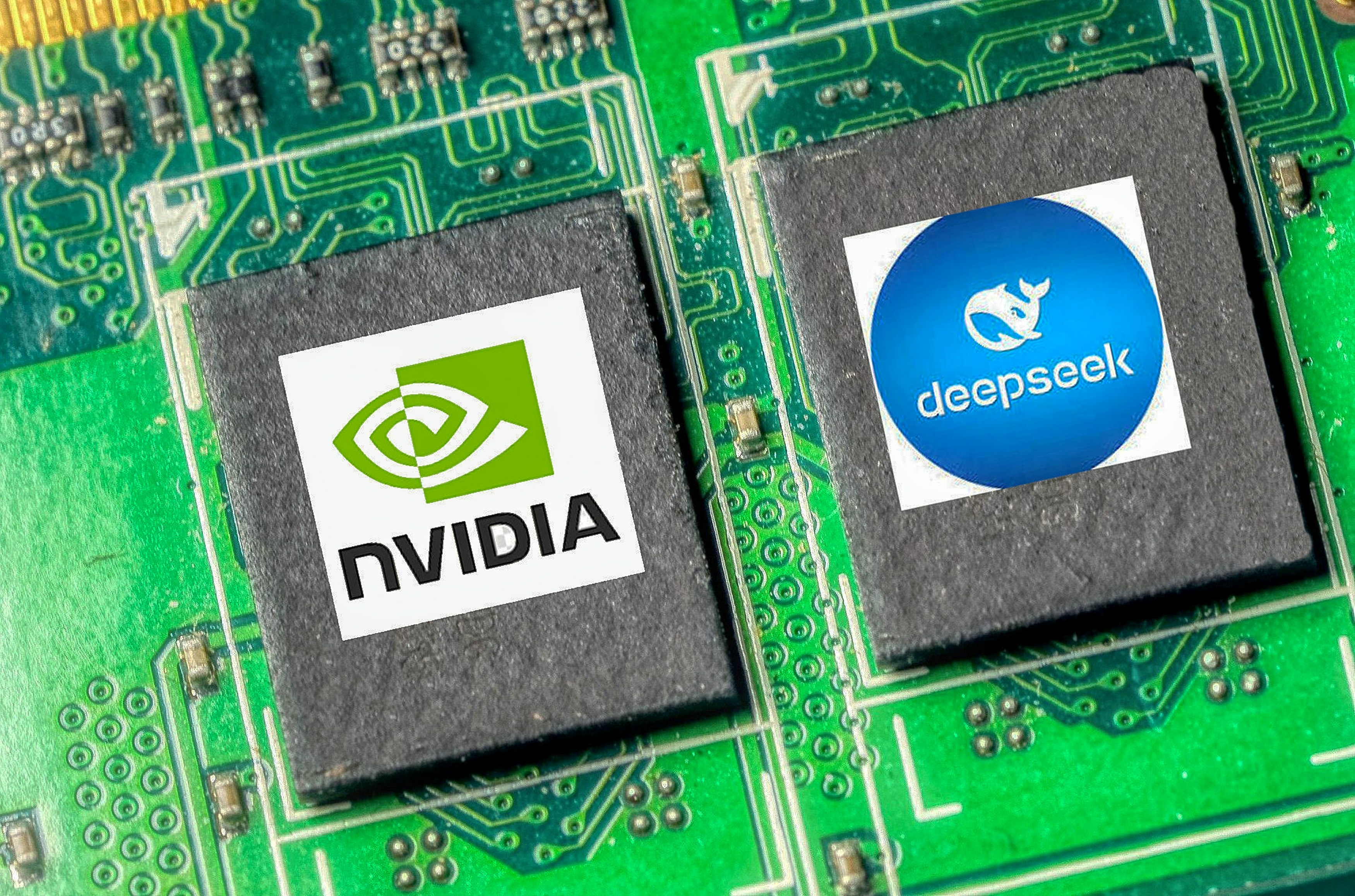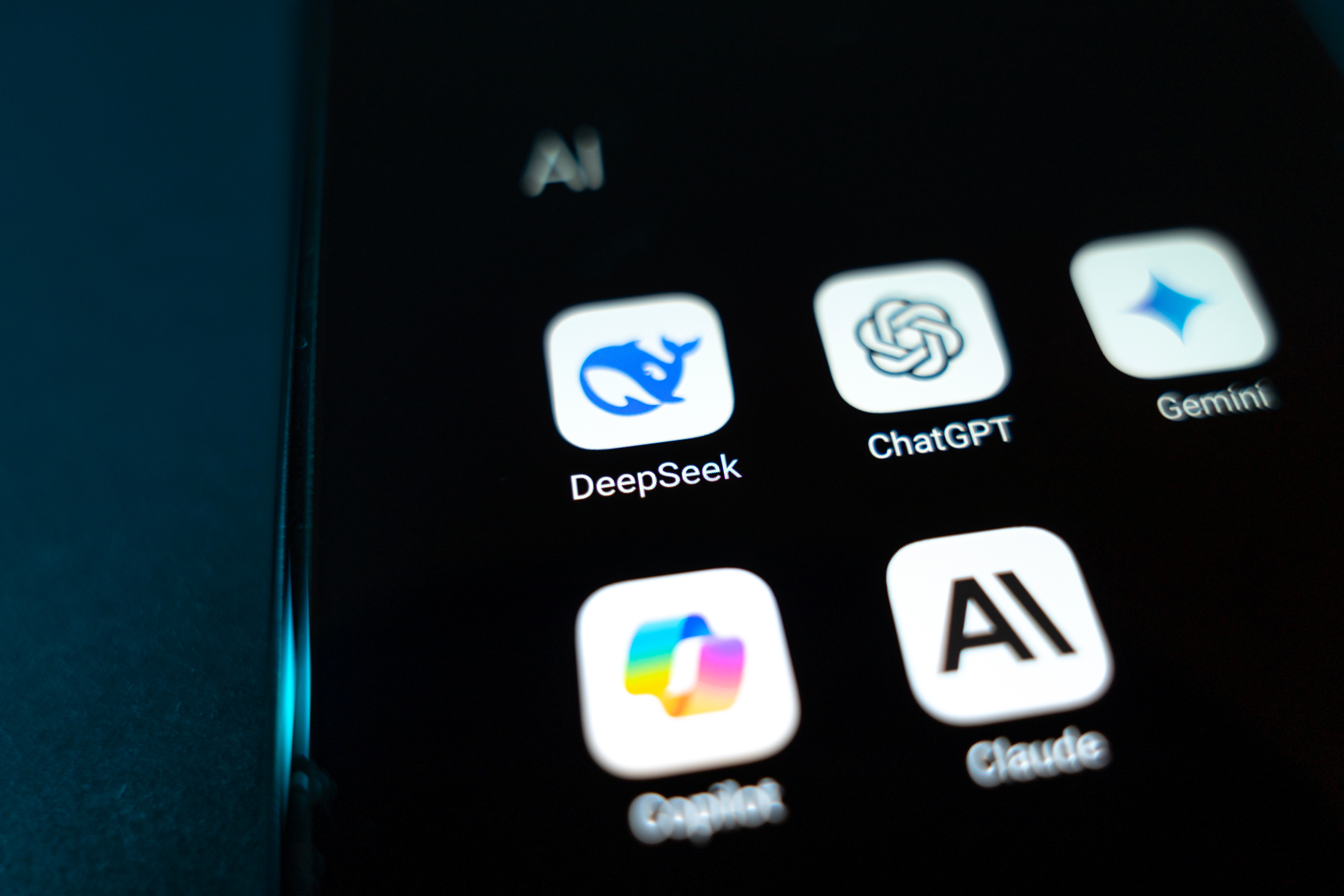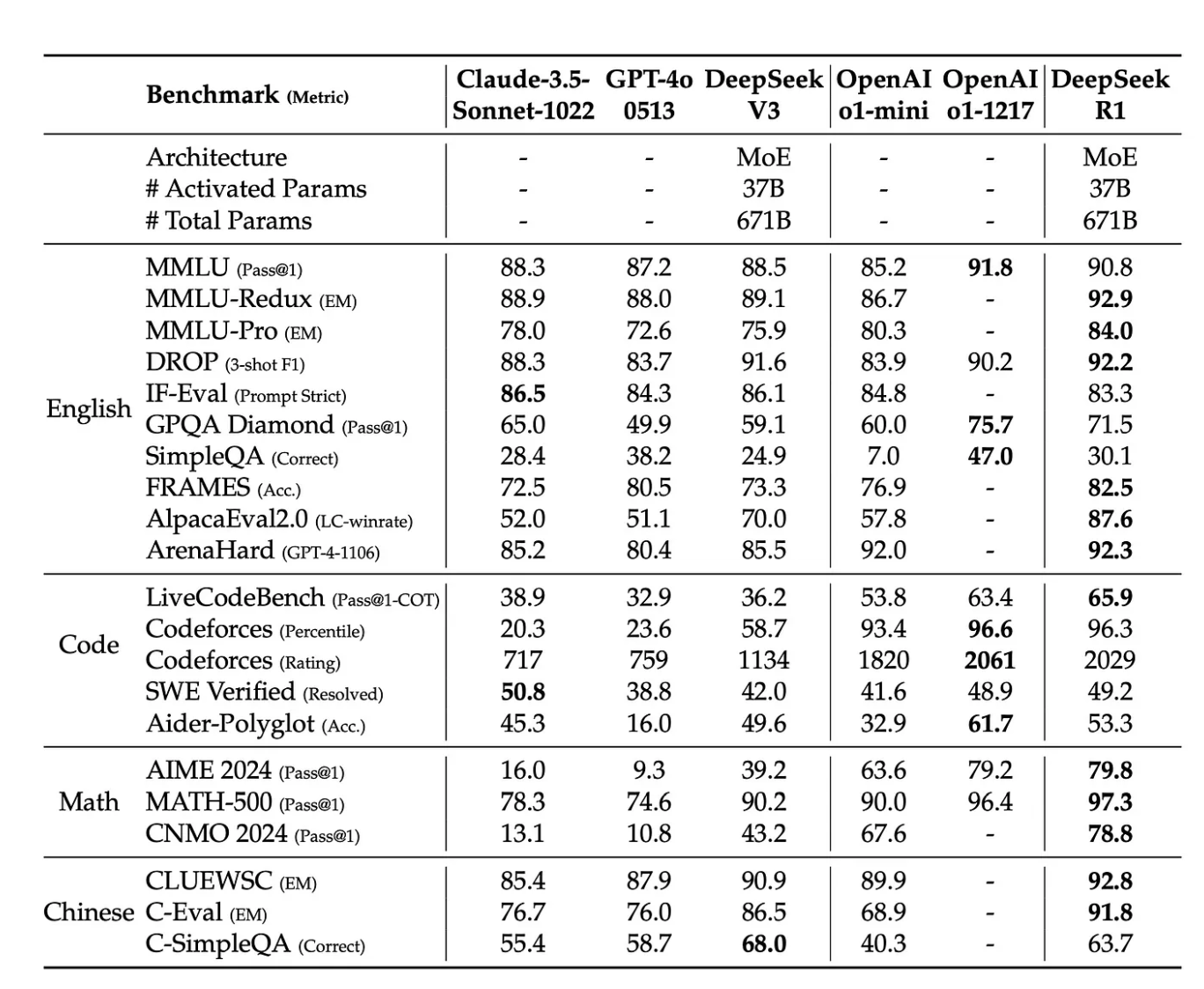When DeepSeek, a relatively unknown Chinese AI firm, burst onto the scene with powerful open-source models rivalling OpenAI’s best, it triggered alarm bells for America.
DeepSeek’s rise to the top of the Apple App Store grabbed global attention and shook the idea that the U.S. would continue as the largely unchallenged global superpower of AI.
As DeepSeek climbs the AI ladder, new allegations are painting a darker picture, one that links the company to China’s military-industrial ambitions, surveillance operations, and a strategic bypass of U.S. export restrictions.

Allegations against DeepSeek
According to Reuters, a U.S. official revealed that the Chinese tech startup sought to use Southeast Asian shell companies to access high-end semiconductors that cannot be shipped to China under U.S. rules.
The U.S. government's assessment of DeepSeek's activities and links to the Chinese government have not been previously reported and come amid a wide-scale U.S.-China trade war.
Among the allegations, the official said DeepSeek is sharing user information and statistics with Beijing's surveillance systems. This is due to the fact that under Chinese law, companies must hand over data to the government upon request.
While this has already been a concern for many, reports suggesting that DeepSeek is actively sharing user data go a step further, raising serious privacy and security concerns for the company’s tens of millions of users worldwide. At the same time, the U.S. continues to restrict firms it believes are tied to China’s military-industrial complex, putting DeepSeek under growing scrutiny.
There’s also a growing belief in Washington that DeepSeek’s swift rise in the AI arena may be exaggerated and more about leveraging American technology behind the scenes. If these allegations hold any truth, the implications are far-reaching, impacting not only the future of AI innovation but also global security, geopolitical stability, and the foundation of digital trust.
This is not the first time DeepSeek has been marred with controversy; its popularity has been clouded by concerns regarding data security before. Reports have indicated that the app stores user data on servers in China, raising fears about the potential for Chinese authorities to access this information under local laws.
The laws mandate that companies share data with the government if requested. Texas became the first state to ban DeepSeek on all state devices as of 31 January 2025, with a handful of other applications that it deemed to be security threats. There are 12 other states in the US that followed suit, and many more are expected to do the same.
Take a look at this video by EM360Tech’s Ben King for a better understanding:
Why It Matters
The U.S. government’s attempts to curtail China’s AI development have included export bans on chips like Nvidia’s H100. These chips power the training of frontier models by OpenAI, Meta, and Anthropic. The assumption was that without H100S, Chinese AI companies would struggle to keep up, but DeepSeek shattered that illusion.
By taking advantage of lower-spec Nvidia H800 chips and finding innovative ways to train models more efficiently, DeepSeek proved that cutting-edge AI doesn’t need cutting-edge silicon, at least not all the time.
And now, according to U.S. intelligence, it appears the company may have also attempted to illegally obtain restricted H100 chips through Southeast Asian intermediaries.
This is a major national security concern. A U.S. official, as mentioned earlier, alleges that:
- DeepSeek has ties to the Chinese military-industrial complex
- It shares user data and system analytics with Chinese intelligence
- It may be using shell companies to skirt U.S. tech controls

When Coding Becomes Conversation
How natural language prompts and LLMs are redefining software delivery, talent models and accountability in enterprise development.
If these accusations hold any weight, DeepSeek becomes more than a disruptive innovator. It becomes a state-aligned entity operating under the guise of open-source accessibility, while funnelling sensitive information back to an authoritarian regime.

What Does This Mean for the USA?
In a bid to protect its lead in artificial intelligence, the U.S. has used export controls as a strategic tool, aiming to curb China’s access to cutting-edge semiconductor technology.
Just days before leaving office, President Joe Biden tightened restrictions on AI chip exports, part of a broader national security agenda to slow rival nations’ progress in the sector. However, the rapid ascent of DeepSeek, China’s latest AI contender, has cast doubt on the long-term effectiveness of that approach.
While sanctions may have delayed competitors, they have not deterred innovation abroad. DeepSeek’s rise marks a significant shift in the global AI landscape, narrowing the technology gap that once gave the U.S. a clear advantage.
President Donald Trump wants to rescind a set of Biden-era curbs meant to keep advanced technology out of the hands of foreign adversaries, but that has been panned by tech giants in the country. The move could have sweeping impacts on the global distribution of critical AI chips, as well as which companies profit from the new technology and America’s position as a world leader in artificial intelligence.
This development presents a challenge not just to U.S. policy but to perceptions of Western technological dominance. For tech leaders and enterprise strategists, it’s a signal that innovation ecosystems are becoming more distributed, and that geopolitical boundaries no longer guarantee technical superiority.
The ripple effects have been felt across financial markets. Nvidia (NVDA), the linchpin of AI hardware, saw its stock drop 12 per cent in premarket trading, its sharpest decline in years. Other tech giants, including Meta, Alphabet, Oracle, Marvell, Broadcom, and Palantir, also experienced huge losses, highlighting investor anxiety over shifting power dynamics in global AI.
Why is DeepSeek so popular?
Inside Automated Attention Farms
Unpacks the AI tools, bots, and engagement algorithms turning content into a fully industrialised, probabilistic monetisation engine.

Many people are probably wondering why DeepSeek has caused a stir since it came onto the scene. For those who don't know, DeepSeek, a Chinese artificial intelligence (AI) startup, made headlines worldwide after it topped app download charts and caused US tech stocks to sink.
DeepSeek-R1, the company’s flagship reasoning-capable language model, is the first publicly available system to match the performance of OpenAI’s o1, outpacing rivals like Anthropic, Google DeepMind, and Meta. What sets it apart is that R1 is open-source, freely downloadable and can be used by developers around the world.
In essence, DeepSeek has managed to replicate or surpass some of the West’s most sophisticated AI tools, with fewer resources and at significantly lower cost. If that wasn't enough, they’re giving it away.
The tech start-up has become popular because of its openness. The company released the model’s weights (though not its training data), alongside a detailed technical paper outlining the methodology. That level of transparency, once common in the AI community, has become rare among U.S. frontier labs, with Meta being an exception.
The impact was immediate; the DeepSeek app jumped to number one on the Apple App Store, overtaking ChatGPT and leaving competitors like Gemini and Claude far behind. For many, this moment was unexpected.

Nearly two-and-a-half years into U.S. export controls meant to slow China’s AI progress, few believed a Chinese company would catch up so quickly. The release of r1 has triggered a wave of questions: Have export controls in the US failed? Does computing still matter as much as assumed? Is DeepSeek a legitimate research lab, or something more aligned with state interests? Perhaps most interesting of all: Has America lost its lead in AI?

When LLM Power Meets AI Risk
Explore the tradeoffs behind LLM adoption, from bias and misinformation to multimodal capabilities and competitive pressure.
The biggest revelation may lie in what r1 represents about the nature of intelligence itself. DeepSeek's approach used pure reinforcement learning without supervised data to teach the model to reason, allowing it to evolve on its own. This means that the hard problem of explicitly teaching a machine to think can be replaced by the simpler act of scaling a system and letting it learn to think for itself.
That insight, central to the success of O1 as well, has been largely overlooked in public discourse. If nothing else, r1, which was released in January 2025, may finally shake U.S. policymakers and the public into recognising the profound shift underway in AI. As DeepSeek put it, this is just the first step.

Who is Behind DeepSeek?
DeepSeek was founded in December 2023 by Liang Wenfeng, once a relatively unknown figure; he has been into the global spotlight amid the company’s rapid rise in the AI arena. The company launched its first large language model (LLM) the following year, quickly gaining global attention.
Wenfeng holds degrees in electronic information engineering and computer science from Zhejiang University, one of China’s top institutions. While he is not in the spotlight like the typical Silicon Valley tech founders, his influence is growing. According to the BBC, he was recently photographed attending a high-level meeting led by Chinese Premier Li Qiang, a sign of DeepSeek’s rising importance in the national tech agenda.

Unlike many American AI founders with backgrounds in software engineering or academia, Liang comes from the world of finance. He is also the CEO of High-Flyer, a quantitative hedge fund that uses AI to guide investment decisions. In 2019, it became the first quant fund in China to raise over 100 billion yuan (around $13 billion at the time), a milestone in China's financial industry.
His ambitions in AI reflect a similar mindset. In an interview originally published by 36Kr, Wenfeng said:
Why As-Code Wins in AI Data
How AI shifts data teams from drag-and-drop tools to declarative guardrails, making versioned code the backbone of trusted analytics.

“For many years, Chinese companies got used to letting others lead on technical innovation while we focused on applying it. But that’s not something we should take for granted. In this new wave, we’re not looking to make a quick profit; we want to be at the forefront of the technology and help drive the entire ecosystem forward.”
Still, DeepSeek’s success hasn’t come without controversy. Data protection authorities in several countries have requested clarification on how DeepSeek handles user information, particularly given that its servers are located in China.
What Happens Next?
The U.S. may not wait long before escalating action against DeepSeek. Sanctions, export bans, or cybersecurity warnings could all be on the table. Meanwhile, tech giants like Amazon, Microsoft, and Google are offering DeepSeek models to customers via their platforms—an awkward position if national security concerns gain traction.
DeepSeek’s success shows just how powerful and accessible open-source technology can be. Its tools are widely available and impressively built. But the recent allegations paint a more troubling picture—one that suggests there could be more going on behind the scenes.
As global competition in tech grows, it raises an important question for governments, businesses, and everyday users: Who can we trust with our data and digital infrastructure? With DeepSeek now in the spotlight, that question is becoming harder to ignore.







Comments ( 0 )